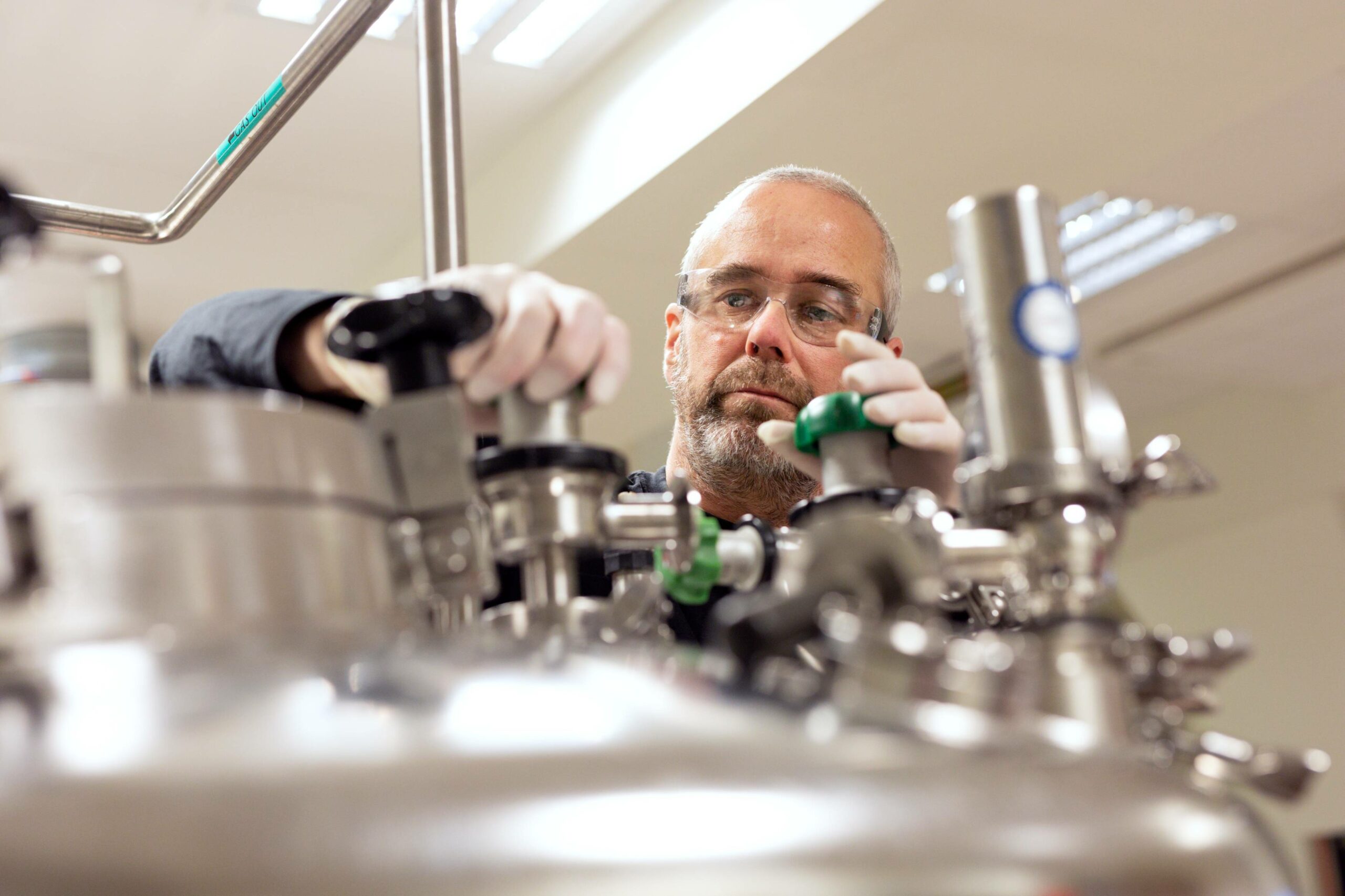
Important milestone for the ExpandFibre Ecosystem: RISE joins as the 100th member
MembersWe are delighted to welcome RISE as the 100th member to the ExpandFibre Ecosystem! In Sweden’s innovation landscape, the Research Institutes of Sweden (RISE) stands out as a driver of sustainability. RISE is not just the nation's research institute but also a partner in innovation, fostering the competitiveness of Swedish businesses and contributing to a sustainable society through its extensive network of international collaboration programmes. We talked to Tomas Anderson from RISE who shed more light to what the organisation stands for.
Involved with some of these transformative initiatives is Tomas Anderson, based at RISE in Stockholm. With a strong background in the global pulp and paper industry, Tomas has been with RISE for seven years, recently stepping into a business development role. His work is centred to advancing Sweden's sustainability targets within RISE.
RISE's decision to join ExpandFibre Ecosystem aligns with the shared mission to harness the power of the bioeconomy to improve the world. In his role, Tomas sees himself as a kind of an enabler for commercialisation and a facilitator of networking opportunities for the other member companies of ExpandFibre.
Networking, ecosystems and collaboration in Sweden
When it comes to collaboration and networking, Tomas observes that Finland and Sweden have very similar ecosystems and could therefore both find smart and effective synergies as well as great combinations of resources and funding to jointly and well-coordinated drive important research forward. Finland may have a slight edge over Sweden in certain areas, and vice versa in others, perhaps attributed to its more centralised approach to public funding in Finland compared to a more fragmented system in Sweden for public funding of research, development, and innovation. Initiatives such as Treesearch and the Wallenberg Wood Science Center could perhaps be seen as Sweden's counterparts to Finland's ExpandFibre, albeit with a focus more on the investment side and with less companies involved.
The collaboration between Sweden and Finland extends beyond their borders, with shared sites worldwide and a natural affinity within the Nordic region. The bioeconomy collaboration is not confined to the Nordics, as RISE also engages with European partners and maintains a global reach with long-standing relations with institutions like SENAI in Brazil and Georgia Tech in the US, for example.
Trends and focus areas in the Swedish bioindustry and RISE ecosystem
The bioindustry in Sweden is witnessing a shift in focus, with rising interest in cellulose-to-textile processes, lignin applications, sustainable materials for packaging, and barriers. Despite lignin's potential re-emergence as one of forest industry’s hot topics, the traditional paper industry continues to face challenges, leading to a dip in paper technology research. That said, there are signs that new energy-efficient technologies have emerged and could be developed towards a much improved and carbon neutral pulp and paper production.
A significant investment is being made to establish the research and innovation platform Bioeconomy Arena in Sweden, with SEK 350 million allocated to build state-of-the-art pilot facilities for biorefinery processes. The initiative aims to broaden the use of fibres and upscale production.
The battery sector is another area of intense interest, with new factories emerging across Sweden and research into lignin's potential use in batteries underway. Volvo's commitment to building a battery factory in Sweden underscores the industry's momentum.
Finnish companies have taken note of RISE's efforts, particularly the spinning pilot facilities in Mölndal near Gothenburg, and the research into fermentation and barrier materials for packaging in Lund.
Tomas also wants to highlight yet another emerging field — moulded forming. RISE is starting a new production process pilot alongside its smaller, batch process pilot in Stockholm. This area harnesses the institute's expertise in fibres, chemistry and barriers with very clear synergies in knowledge from the pulp, stock preparation and papermaking processes.
The collaboration between ExpandFibre and RISE is set to flourish, with a shared vision of cross-border collaboration to achieve the ambitious future goals set for bioeconomy. With RISE becoming the 100th member of the continuously growing international ExpandFibre Ecosystem, the stage is set for a robust Nordic contribution to Europe's sustainable development, driven by complementing each other rather than competing.

Photos: RISE